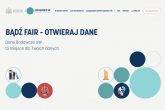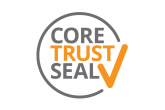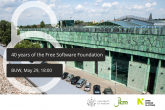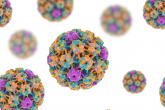Supercomputing Frontiers Europe 2021 (SCFE’21) is announcing keynote speakers!

The leaders of the field: Anders Jensen, Irene Qualters, Roberto Car and Hiroaki Kitano will report on the most important developments in supercomputing and computational science.
The Supercomputing Frontiers Europe 2021 organizers are thrilled to announce this year’s keynote speakers. The conference, organized by Interdisciplinary Centre for Mathematical and Computational Modelling University of Warsaw, Poland, will be held digitally between July 19-23, 2021.
“SCFE is designed to fill the niche among several excellent and much bigger, more generalist conferences. The main emphasis is on “frontiers”: bold visions and ideas that might shape future progress; new computing technologies enabling scientific discoveries, and development of new methods of computation and analysis, as well as lowering barriers to access computational power for new groups of users and in much wider geographies.” – dr. Marek Michalewicz, General Chair of Supercomputing Frontiers Europe 2021, Director of ICM University of Warsaw.
Here is the lineup of SCFE’21 keynote speakers
MONDAY, JULY 19TH
Anders Dam Jensen – Executive Director, EuroHPC Joint Undertaking
Anders has a lifelong interest in supercomputers, dating from his time in university. He started his professional career with 10 years of engineering work developing computing hardware, firmware, and software for embedded systems. He pioneered IEEE802.11 wireless network technology in the nineties while working for Symbol Technologies. After a decade working with hardcore engineering and product development, Anders shifted into management as he joined Cargolux Airlines International as Director IT. In 2011, Anders was selected as the Director ICTM for the North Atlantic Treaty Organization (NATO), responsible for all Information and IT services as well as one of the largest classified networks in Europe. In 2020, Anders was appointed as Executive Director for the European High Performance Computing Joint Undertaking, a joint initiative between the EU, European countries and private partners to develop a World Class Supercomputing Ecosystem in Europe with a proposed budget of 8 billion euro. Anders holds a Master of Science Degree as well as a Master of Business Administration degree from Technical University of Denmark. He is based in Luxembourg, married to Mette, father of two.
Irene Qualters– Associate Laboratory Director for Simulation and Computation at Los Alamos National Laboratory, a U.S. Department of Energy national laboratory.
Irene had a distinguished 30-year career in industry, with a number of executive leadership positions in research and development in the technology sector, prior to her NSF career. During her 20 years at Cray Research, she was a pioneer in the development of high performance parallel processing technologies to accelerate scientific discovery. Subsequently as Vice President, she led Information Systems for Merck Research Labs, focusing on software, data and computing capabilities to advance all phases of pharmaceutical R&D. As Associate Laboratory Director of Simulation & Computation, Irene Qualters directs programs that provide cutting-edge tools to guide and interpret experiments and further the fundamental understanding and predictive capabilities of complex systems. She has previously served as a Senior Science Advisor in the Computing and Information Science and Engineering (CISE) Directorate of the National Science Foundation (NSF), where she had responsibility for developing NSF’s vision and portfolio of investments in high performance computing, and has played a leadership role in interagency, industry, and academic engagements to advance computing.
TUESDAY, JULY 20TH
Roberto Car– Recipient of the 2020 ACM Gordon Bell Prize; Professor at Department of Chemistry, Princeton University
Roberto is a theoretical condensed matter physicist and physical chemist. He is known for the ab-initio molecular dynamics method that he introduced with Michele Parrinello, and for electronic structure and simulation studies of disordered systems. Car was born in Trieste (Italy) and graduated from the Milan Politecnico (Technical University of Milan). After postdoctoral appointments at EPFL (Switzerland) and at the IBM TJ Watson research Center, he held physics professor positions at SISSA and at the University of Geneva (Switzerland). Since 1999 he is professor of chemistry and the Princeton Institute for the Science and Technology of Materials at Princeton University, where he is also associated professor of physics and the Program in Applied and Computational Mathematics. Car has been awarded numerous prizes, including the 1990 Europhysics Prize, the 1995 APS Rahman Prize, the 2009 Dirac Medal of the ICTP, the 2009 IEEE Fernbach Award, the 2010 Berni J. Alder CECAM Prize for Computational Physics, the 2012 Fermi Prize of the Italian Physical Society, the 2016 ACS Theoretical Chemistry Award, and the 2021 Franklin Medal for Chemistry. Car holds honorary degrees from Italian and Swiss Universities. He is a member of the National Academy of Sciences of the USA since 2016.
WENDESDAY, JULY 21ST
Hiroaki Kitano– President at The Systems Biology Institute, Tokyo, a Professor at Okinawa Institute of Science and Technology Graduate University, Okinawa
Hiroaki’s research interests include computational biology, artificial intelligence, massively parallel computer, autonomous robot, systems biology, and open energy system. He received a Ph.D. in computer science from Kyoto University, Kyoto. His research career includes a Project Director at Kitano Symbiotic Systems Project, ERATO, Japan Science and Technology Corporation, Tokyo. Kitano is also an Editor-in-Chief of npj Systems Biology and Applications, and a Founding Trustee of The RoboCup Federation. Kitano served and is currently serving as scientific advisor for numerous companies and research institutions internationally including ALSTOM, Mitsubishi Chemical Holdings, European Molecular Biology Laboratory (EMBL), Imperial College London, Univ. Manchester, and Swiss Systems-X Program. Kitano received The Computers and Thought Award from the International Joint Conferences on Artificial Intelligence in 1993, Prix Ars Electronica 2000, Japan Design Culture Award 2001, Good Design Award 2001, and Nature’s 2009 Japan Mid-career Award for Creative Mentoring in Science, as well as being an invited artist for Biennale di Venezia 2000 and Museum of Modern Art (MoMA) New York at Worksphere Exhibition in 2001. He has been named a fellow of the Association for the Advancement of Artificial Intelligence for 2021.
About Supercomputing Frontiers Europe 2021
The organizers strive to give an open space for the HPC community to interact and discuss visionary ideas. The three-day-conference and two-day-of workshops format is designed to combine knowledge and technology to deliver a compact event for all the attendees. The main topics will be HPC/supercomputing, AI and Quantum Computing. The program will include special sections featuring developments in India and Africa.
In order to accommodate participants from multiple time-zones, the sessions will run between:
- 7AM-11:30PM (San Francisco, LA),
- 2PM-8:30PM (Warsaw, Lagos),
- 6:30PM-1:00AM (New Delhi),
- 9PM-3:30AM (Tokyo).
This year’s conference is expected to draw attendees from Academia, research institutions and industry all around the world.
Join us at the event where no frontiers are needed when talking about science!
For more information on the conference, visit the website: https://supercomputingfrontiers.eu/2021/ or follow SCFE on twitter https://twitter.com/SCFE_conference
STAY TUNED! The program & registration details will follow soon.






